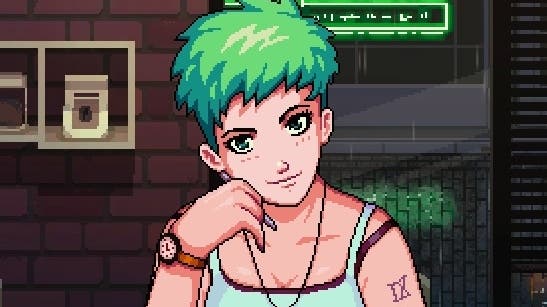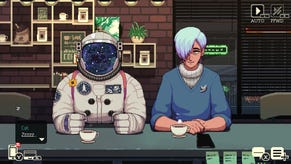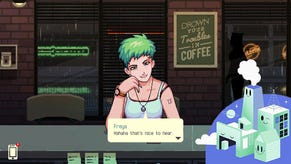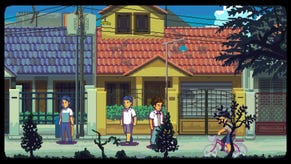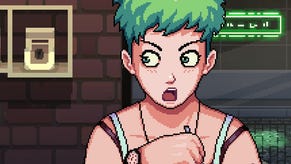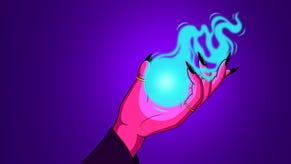Coffee Talk is a visual novel about brews and burnout
And werewolves. And elves.
In Coffee Talk, a visual novel from Toge Productions, you're the proprietor of a Seattle cafe in an alternate universe where vampires, succubi, and all manner of fantasy races inhabit our world. They drop into your late-night coffee shop and talk things out. Regular problems. Relationship troubles, job struggles, all that stuff. Over time though, a theme becomes clear. A lot of Coffee Talk's cast touch on the issue of overwork and the marketing of passions. None encapsulate this more than your first ever patron and one of the only human characters you meet - Freya.
Who is Freya? She's a struggling writer, working day-to-day on whatever will pay her bills. There are some lovely short stories on her outlet's website, often based on the other customers who pop up throughout the course of the Coffee Talk. After work, though, she'll drop by as the sun starts to set and work on her original fiction. You're there, serving her espressos and chatting about her attempts fulfil her dream of publishing a book.
Freya's not okay. Her life is a tangle of various stresses, from the realisation that her daily job just isn't as inspiring anymore, to the ever-encroaching creative burnout that comes with monetising your passions.
I often find myself in Freya's shoes. In a coffee shop, guzzling java outside of work hours, trying to get things done. It's a coping mechanism. I suspect that loads of us, consciously or otherwise, tie some of our self-worth to our productivity.
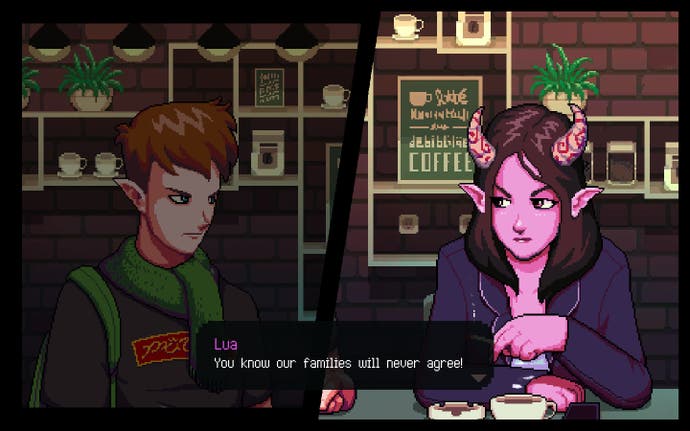
Coffee Talk refuses to accept this. Freya comes in one day demanding her usual espresso, clearly in an absolutely terrible state. Whether or not you give her the coffee, it doesn't make a shred of difference. What makes a difference to her work and success? The stories she becomes a part of. Each of Coffee Talk's patrons has their own hurdle to overcome, and each of them manages with the help of the coterie.
When the game ends, Freya has finished her book. The game developer characters are working more healthily, your werewolf friend has found a cure for his Fury, and Lua and Baileys, the succubus and elf, have decided to move in together. Not everything gets neatly fixed, though. Lua got a promotion, and her company provided an apartment, but they only really helped her out to cut down on commuting costs when she works overtime. Freya's book becoming a massive success (depending on your ending) is great, but it's only a brief respite.
Another day will come when you're overdoing it, crunching hours in the name of productivity. The coffee shop's patrons will inevitably grow away from this little nook. Freya sees Lua and Baileys' love story as a beautiful one, with all the drama and intrigue you'd need in a novelised account - yet even in this final scene, Freya is thinking of the world around her in the context of her work. The job is never done.
Despite this, Freya has at least learned to derive more from the experiences that bring about the stories, rather than the process of writing the stories themselves. You don't need that espresso. Rest up, take the time you need, and try again.
